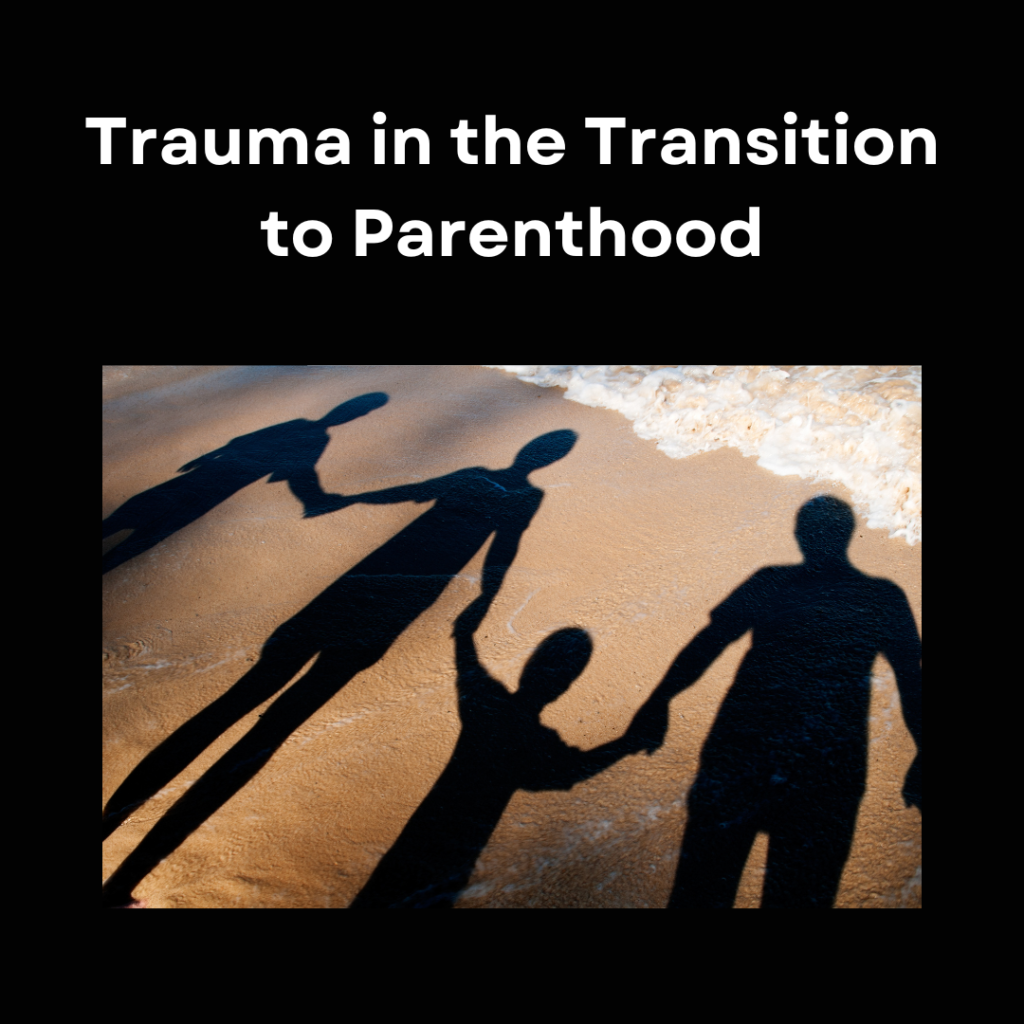Unresolved trauma in parents can cast long shadows over family relationships. It can subtly shape interactions and affect the quality of emotional connection.
In new mothers, unresolved trauma can lead to difficulties adjusting to motherhood. Trauma might arise because of the birth, or because pregnancy and birth activate other traumatic events in the mother’s past. Either way, active trauma symptoms can lead to postnatal depression and sometimes difficulties in the parent-infant relationship.
Trauma and Parenting
Sensitive, responsive caregiving is at the heart of a strong relationship with your baby. I’ve never met a mother who doesn’t want this with their child. However, parents with unresolved and active trauma symptoms such as hyper-arousal, intrusive thoughts or flashbacks, dissociation and so on, have fewer emotional resources available for their baby. This is not your fault.
Parents with PTSD may be caring and dedicated to their children, but trauma, particularly chronic, early trauma by its very nature, distorts our interpretations of the self and others. Typically, people who have experienced trauma are prone to overestimating threat. This makes it difficult to determine if your baby is crying because they are just plain fussy or tired, or whether this is because they are in danger. Babies cry as a means of communicating, and they can cry quite a lot, so making this determination can soon become exhausting (even in parents without a history of trauma).
Trauma as a disorder of non-recovery
Trauma also creates areas of mental inflexibility. This is the nature of trauma and how the human mind works, again this is not any one person’s fault. At the Centre for Clinical Psychology, we discuss trauma/PTSD is a disorder of non-recovery. This means that recovery occurs when we can process the difficult emotional experiences associated with the traumatic event. However, trauma often overwhelms the mind and body, and blocks emotional processing. We also understand that the symptoms associated with the trauma response are protective at some level, but typically only in the short term.
Trauma affects how we process information
As mentioned, trauma tends to skew the perception and interpretation of information. This includes infant signals or evaluations of oneself as a parent. These distorted representations can create enormous distress and suffering in relationships, misunderstandings and missed opportunities for connection. However, the person who has experienced trauma may not be aware of how the trauma is affecting them. Or the person may feel unable to change their response, despite knowing it is not helpful.
At the Centre for Clinical Psychology, we have trained over 750 health professionals from around Australia in Cognitive Processing Therapy (CPT) for PTSD. Thus, we can say ‘we know trauma therapy’. All of our team are trained in CPT for trauma/PTSD.
We also have a number of dedicated perinatal psychologists who are trained in CPT for trauma/PTSD, and also have sound knowledge and experience working in perinatal and infant mental health.
Cognitive Processing Therapy is listed in the Australian PTSD Treatment Guidelines as a gold-standard treatment for PTSD (alongside EMDR and prolonged exposure), and it is backed by over 40 years of research.
Call to book an appointment 03 9077 0122 or email admin@ccp.net.au, or book online www.ccp.net.au/booking/
Medicare rebates available with a referral from your GP.



